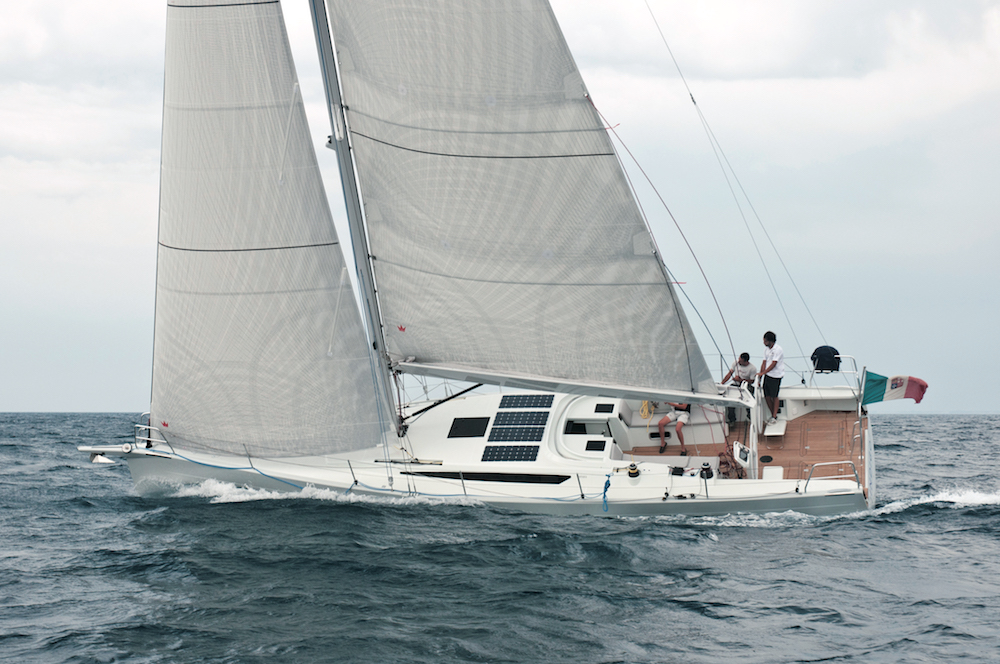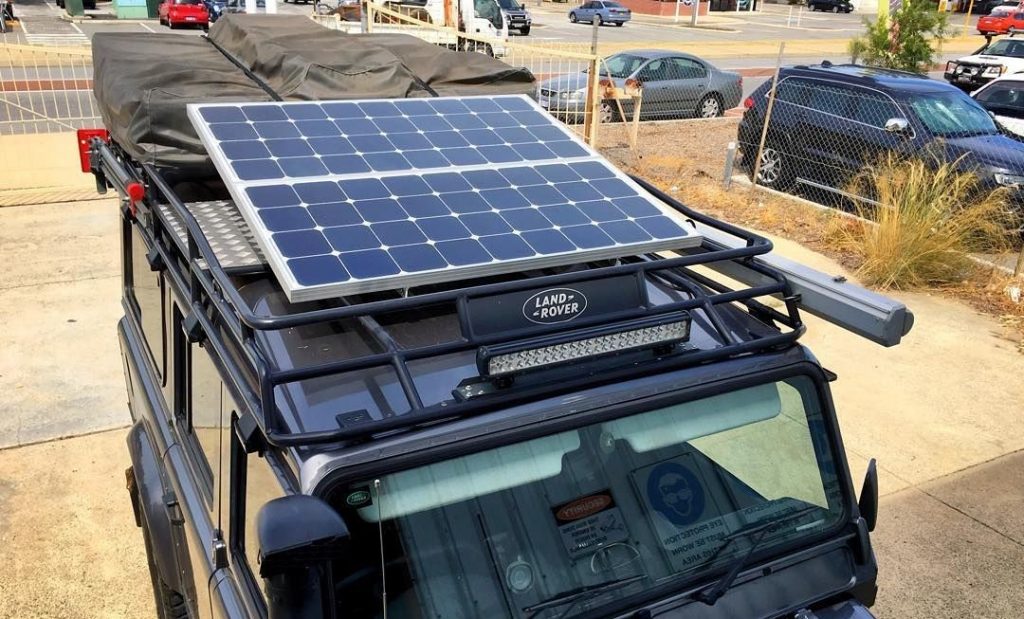Looking at solar panels for your caravan? There's a huge variety out there to choose from. Fellow travellers will likely chew your ear off around the campfire telling you which one is best! In our opinion, one of the biggest decisions you will make these days is between flexible solar panels and fixed panels.
So, what's the difference between the two?
Flexible solar panels are a new style of panel that can bent to around 30 degrees, whereas fixed solar panels are rigid in structure and heavier.
Which one is right for you? Here we help you weigh up the pros and cons:
-
Pros Of Flexible Panels
-
Flexible Solar Panels Can Contour Their Shape To Different Surfaces:
One of the biggest advantages of flexible solar panels is how they can fit to vehicles with a curved roof. That means caravans, campervans, RVs and even yachts, if that's your style! In fact, Italian-made Solbian panels are tested on racing yachts and are constructed to be marine grade.
-
Flexible Solar Panels Are Lightweight:
Unlike fixed panels, flexible panels don't require rigid, heavy mounting frames or glass. The result is an extremely lightweight solar panel. Panels made by Gioco, eArc and Solbian can be as thin as just 3mm! In fact, eArc panels weigh just 3kg for a 175W frameless panel. Now that's what we call featherweight!
-
Flexible Solar Panels Are Built Tough:
They might be lightweight, but flexible panels are extremely durable. For example, eArc solar panels are reinforced with glass fibre, similar to windows you find on a plane. Why is this important? Because it means they can withstand strong winds and loads. If you like to know specifics, they are rated 2400 pascals for wind and 2400 pascals for load. They are even strong enough to be approved for residential use by the Clean Energy Council. Another top choice, Solbian panels feature a tough textured surface option for extra toughness.
-
Flexible Solar Panels Are Versatile:
Compared to fixed panels, flexible panels are highly versatile. They are able to contour shape, which means you can use them on a range of different surfaces to capture the maximum solar energy. Need even more energy? Install multiple panels on your roof. Solbian and eArc panels are waterproof too for even more convenience while you travel.
-
Flexible Solar Panels Are Easy To Install & De-install:
One thing our customers love about flexible panels is how easy they are to install. No messing around with heavy mounting frames and drilling holes on your caravan roof. Most panels can simply be taped or stuck to a surface using double-sided tape or an adhesive. If you install your panels on a smooth surface using the adhesive tape, the result is a low profile and secure bond with no bumps or dips.
-
Cons Of Flexible Panels
-
Flexible Solar Panels Are Only Attached With Adhesive Or Tape:
On the flip side, flexible solar panels being attached with adhesive or double-sided tape means they aren't as well secured as fixed panels. But if you want more stability, you can secure your panel using bolts or screws through the panel's eyelets.
-
Flexible Solar Panels Can Be Damaged By Impact & Scratching:
All solar panels can be damaged if the impact is strong enough, but it's true that flexible panels are susceptible to damage by impact because there's no glass to protect the cells. Hail storms and low hanging branches are both risks while you're travelling, as well as somebody accidentally walking on the panels.
However some flexible panels, such as the eArc panels have been hail tested with ice stones of 35mm diameter and 200g mass at 39.5m per sec, thus making these more durable than some other brands.
Now you know the pros and cons of flexible solar panels, how do they compare to fixed panels?
-
Pros Of Fixed Panels
-
You Get Value For Money:
There are some cheap flexible panel models but if you're comparing the top of line fixed panels with the top of the line flexible panels, the difference in price can be hundreds of dollars. If you're on a budget, fixed panels are the way to go.
-
Fixed Panels Are Highly Efficient:
Some of our favourite fixed solar panel brands are Enerdrive, Dometic and Exotronic, and they know how to make extremely efficient solar panels.
-
Fixed Panels Are Secure:
No need to worry about your panels moving, these guys are drilled in using bolts so they won't budge a centimetre. If you're heading off-road on bumpy tracks, this is a definite plus. That's why you'll find them mounted to roof racks, on top of caravans, and even angled as wind deflectors on the top of 4WDs.
-
Cons Of Fixed Panels
-
Fixed Panels Are Heavier:
Fixed panels require heavy, rigid mounting frames or glass, which means they are the heavier option for your caravan. And when we say heavier, we mean they are around 75% heavier than flexible panels. That said, there are some manufacturers who are now making lighter fixed panels. For example the Enerdrive 190W Mono Crystalline Fixed Solar Panel weighs in at 11.5kg.
-
Holes Have To Be Drilled To Install The Panels:
Unlike flexible panels which only need adhesive to be mounted, fixed panels require you to drill holes into your caravan in order to secure the mounting frame. For some people, that's a deal breaker.
-
Fixed Panels Must Be Installed On A Flat Surface:
If you have a curved roof or surface, fixed panels are not an option. They must be installed on a flat surface.
-
Our Verdict
Are flexible solar panels better for your caravan than fixed panels? It depends on lots of factors, including the weight of your vehicle, the installation you prefer, and how durable you need them to be. Definitely if you have a curved roof or want to use solar on a boat, flexible solar panels will tick all the boxes, including ultra-lightweight design and versatility. But if you want something that will be durable and tough, fixed panels could be the better choice.
DISCLAIMER* Please note, this advice is general in nature and we strongly recommend consulting the product manual and where relevant, a professional installer.

.jpg)










